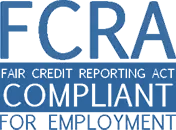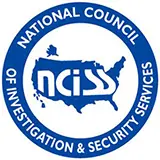 Most internet users know about email and phishing scams involving Nigerian Prince claims, emails from “lawyers” asking for bank transfers, and links from “businesses” claiming you’ve won an unsolicited prize or sweepstakes. If you still fall for those, stop! You will not get any money from a prince. No one died and left you a fortune, and those business emails are from scammers and cybercriminals looking to make you their next meal ticket. But what are some of the most common cyber tricks, and what can you do to avoid internet scams in 2023?
Most internet users know about email and phishing scams involving Nigerian Prince claims, emails from “lawyers” asking for bank transfers, and links from “businesses” claiming you’ve won an unsolicited prize or sweepstakes. If you still fall for those, stop! You will not get any money from a prince. No one died and left you a fortune, and those business emails are from scammers and cybercriminals looking to make you their next meal ticket. But what are some of the most common cyber tricks, and what can you do to avoid internet scams in 2023?
COVID-19 Scams
According to the Federal Trade Commission, nearly 20,000 Americans reported claims of COVID-related scams since the beginning of 2020. The takeaway: Don’t believe anyone asking you directly via email or in chat mode online for donations unless you can verify the legitimacy of the claim and the individual or business.
Disaster Relief Scams
It’s normal to feel sympathetic to others’ plight, but cybercriminals take advantage of that. Never give your credit card or banking information to anyone via email. And do not respond to email accounts that don’t match email addresses on certified websites or those that look sketchy. In fact, block any repetitive senders or send those right to your spam folder.
Job Offer Scams
Fake job offers are common, even on reputable sites like LinkedIn. Unfortunately, hackers are getting smarter, and many legitimate-looking job offers from established businesses can also be scams. Always be aware of anything that sounds too good to be true. It likely is. When in doubt, call the business itself and ask to speak to the owner to see if the person who “hired” you is an actual employee there and if the job offer is authentic before giving the recent contact any personal information.
Pre-Approved Scams
If you’re among the 48% of Americans who want to improve or boost their credit, the idea of pre-approved credit cards and loans may make your heart race. However, unsolicited offers like those are almost always scams. You can know for sure if they ask for money upfront to process your application or if they require you to deposit a check from them. You can check the authenticity of the offer with your bank, request a temporary credit block from the three major credit reporting agencies, and even file a report through the FTC.
Social Media Scams
Social media is a great way for legitimate businesses to get ad revenue and build a loyal customer base. But in 2021, Americans lost a whopping $770 million to social media scams. Scam warning signs include posts or ads with extremely low prices for common or coveted goods, and posts with links redirecting you to pages where you “claim a prize”. Unless you can verify the company’s legit, do not enter any payment method or personal information.
Digital scams aren’t always obvious, so don’t feel foolish if you’re taken in by a crafty cybercriminal. Fortunately, there are plenty of options to avoid internet scams and report them as needed. And if you’re overwhelmed or not sure about specific emails or offers, call us for extra cyber investigation services.










